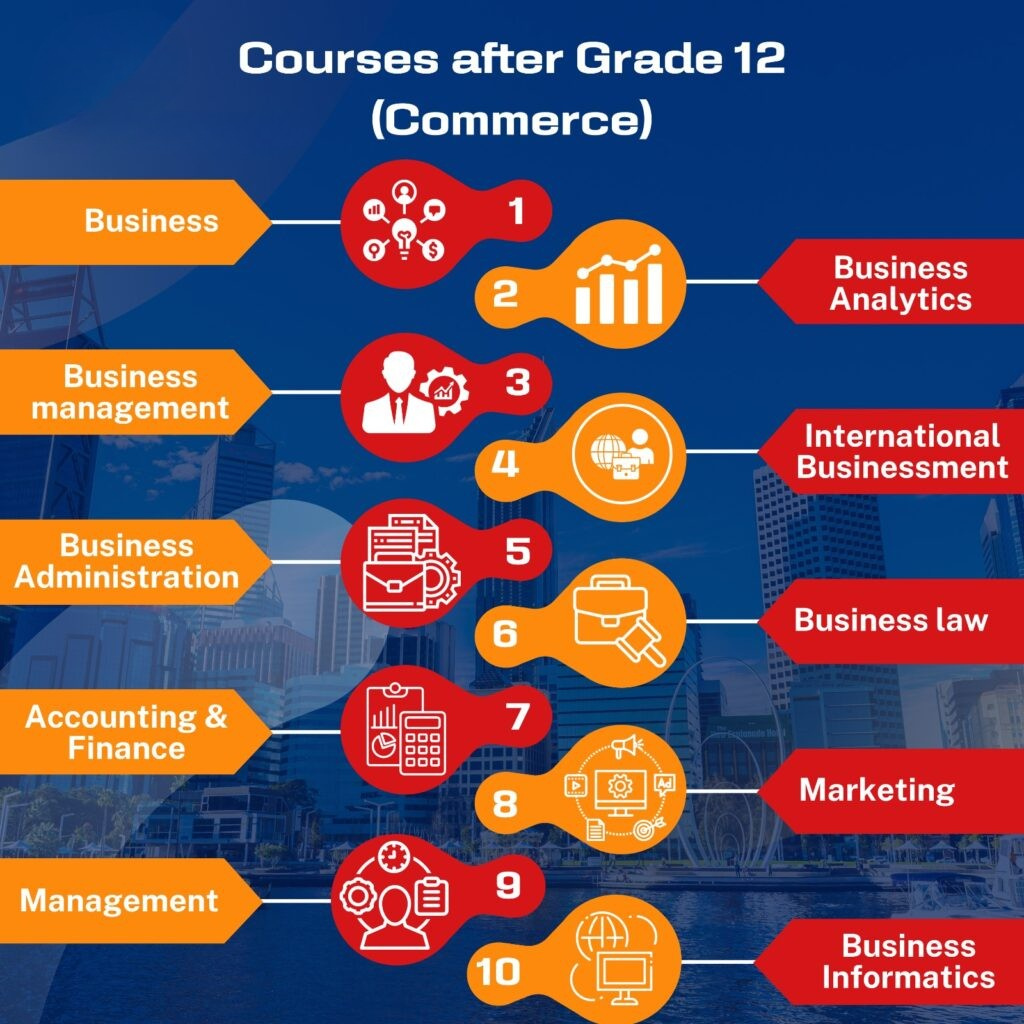Australia is becoming a more popular location for Indian students seeking higher education. Due to its excellent universities, first-rate educational system, and welcoming environment, Australia has become the third most popular study abroad destination in the world, behind the US and Canada. Given the wealth of advantageous factors, it makes logical that so many students are selected to study in Australia after completing their 12th grade.
Higher education beyond postgraduate and master’s degrees is increasingly sought after. After completing the 12th grade, a growing number of international students are showing a strong desire to continue their studies in Australia.
This article will assist in examining the reasons Australia is the greatest place to study as well as the requirements for a study visa following the 12th grade.
Why Study in Australia?
There are several internationally recognised universities in the country. Universities provide a variety of financial assistance programmes to assist students in covering the cost of their education in addition to excellent training. The cities of Australia provide a diverse range of cultures and are hospitable to students. In addition to these, there are several benefits to studying here, which is why many students choose it.
Education System after 12th in Australia:
The Australian educational system fosters a variety of abilities, including critical thinking, communication, creativity, and analytical thinking. In 1995, the Australian Qualifications Framework (AQF) was launched. It serves as the foundation for Australian education. Ten levels make up the AQF, which unites various educational institutions such as colleges, universities, and schools under a single national framework. There are three levels to Australia’s educational system: primary, secondary, and post-secondary.
Its three-tiered educational system adheres to the standards of the Australian Qualification Framework (AQF). The schooling system is split into 10 levels.
| Levels | Programs |
| 1-4 | Certificate courses |
| 5 | Diploma programs |
| 6 | Associate and Diploma degrees |
| 7-8 | Bachelor’s & certificates |
| 9 | Master courses |
| 10 | PhD or Doctorate certificates |
Course Duration to study:
International students can enrol in a range of courses after completing the 12th grade. Some of these programmes is shown in the following table:
| Programs | Time frame |
| Undergraduate (UG) courses | 3 yrs |
| Foundational | 1 yr |
| Honors courses | 4 yrs |
| Vocational courses | 6 months to 1 yr |
Top Undergraduate Courses in Australia After 12th:
The country is renowned for its top-notch, cutting-edge facilities and extensive selection of academic programmes in higher education. Students usually decide to pursue bachelor’s degrees and certificate programmes after finishing their 12th grade studies. The social sciences, applied sciences, healthcare, and IT all provide a wide range of options.
English is the primary language of instruction, thus fluency is essential. Those who want to “Study in Australia” can choose from these notable bachelor’s degree possibilities, but students should make their own choices based on their own goals and interests. Please be aware that this is not a comprehensive list of programmes; Australian universities provide a range of bachelor’s degrees for students who want to continue their education beyond the 12th grade.
Diploma courses after 12th in Australia:
if the student plans to register in an Australian diploma degree for the upcoming intake,Universities provide a variety of courses taught using modern teaching techniques in addition to clear, flexible academic calendars. These courses are a desirable substitute for students who want to apply for a study visa since they are affordable and frequently offer valuable internship and placement possibilities.
View the list of undergraduate and graduate courses:
| Bachelor’s courses | Diploma courses |
| Commerce Creative Arts Education Early Childhood Education Civil Engineering Environmental Science Computer science Business Medicine Business Accounting Applied Finance Dental Science Laws | International BusinessAccounting Construction & Building Financial Services BusinessMarketing & Communication Law Journalism Mental Health Business Administration Data Science Software Development Pharmaceutical Science |
Best Courses for various streams in Australia:
Studying in Australia is easy if students select the appropriate course of study and meet the university’s prerequisites. Students may still find it challenging to choose the right course for their goals.
In India, students typically have three major choices after the 12th grade: science, business, and the arts and humanities. Examine each of these streams independently to help Indian students get a better sense of the academic choices offered by Australian colleges.
- Arts:
After the 12th grade, the art courses offer a stimulating educational route. Australian educational institutions provide a wide range of creative programmes and are renowned for their excellent training. Studying the arts may broaden perspectives and open up a variety of career choices. As a result, it is the perfect place for anybody who has an interest in the arts to follow their creative pursuits and obtain a well-rounded education.
Arts Courses to Study:
- Creative Arts
- Visual Arts
- History
- Bachelor of Arts (Media)
- Creative & Professional Writing
- Commerce:
Enrolling in commerce programmes in Australia after high school offers students the exciting opportunity to study more about the exciting domains of business, economics, and finance. After high school, students who pursue degrees in science, art, or commerce should anticipate successful career opportunities. These degrees are equally popular. The top business programmes available are listed below:
Commerce courses to study:
- Business management
- Law
- Marketing
- Finance
- Accounting
- Supply chain & Logistic management
- Human resource management
- Medical:
Australia’s renowned institutions provide top-notch medical programmes and attract students from across the globe with their state-of-the-art facilities, creative research, and commitment to training the next generation of healthcare professionals. The top post-secondary medical programmes that Australian universities offer are listed below.
Medical courses to study:
- Pharmacy
- Biology
- Physiotherapy
- Nutrition
- Nursing
- MBBS
- Environmental Science
- Public Health
- Non-Medical:
Examining the top science programmes in Australia, especially those that are not in the medical field, offers 12th graders a gateway to a world of scientific advancement and discovery. The esteemed Australian universities are well known for their excellent non-medical science programmes, which foster a thorough understanding of a number of scientific domains. The following is a list of the top non-medical courses to register in:
Non-Medical Courses to study:
- Computer Application
- Early Childhood Education
- Engineering
- Architecture
- Computer Science
- Environmental Science
Best Universities to study after 12th:
Here are the list of colleges/universities students can choose to pursue further studies:
| Universities |
| University of Sydney |
| Monash University |
| University of New South Wales |
| Griffith University |
| University of Queensland |
| Australian national University |
| University of Melbourne |
| The University of Western Australia |
| Curtin University |
| University of technology, Sydney |
| Deakin University |
| University of Adelaide |
| Macquarie University |
| Royal Melbourne Institute of technology (RMIT) |
| Australian University |
Eligibility Criteria to study after 12th:
Depending on the courses, programmes, and academic levels they choose, Indian students must meet several prerequisites in order to continue their education. To be qualified, applicant must meet the requirements listed below:
- To start their degree programs, applicants must be at least eighteen years old.
- Students must score at least 60–65% on their 12th grade examinations in order to be eligible to apply. They must also perform well on language proficiency tests such as the TOEFL, IELTS, and others.
- To apply to study in Australia, students must be ready and submit the necessary documentation. Mark sheets from grades 10 and 12, a resume, a statement of purpose (SOP), GMAT, TOEFL, and IELTS scores, and documentation of their accomplishments at the state or national level are some examples of these resources.
- Students must also write a Statement of Purpose (SOP) explaining their reasons for applying to a particular college as part of their study for the Australian application.
- Apply for a visa, students must provide certain paperwork, such as an eCoE (Electronic Confirmation of Enrolment) letter, academic credentials, a resume, proof of available money, and evidence that they fit the Genuine Temporary Entrant (GTE) requirement.
Documents Required:
To study in Australia, student should be aware of the documents they need to submit with application. Below is a list:

- Grade 10 & 12 mark sheets
- Results of tests of language competency
- Passport photos
- A recommendation Letter (LOR)
- CV or resume
- SOP (Statement of Purpose)
- a valid passport
- Application fees receipt
To reduce the possibility of rejection, it is essential to submit proper documents and complete the application form with accurate and clear information.
Admission process for study in Australia:
Students who plan to pursue higher education in Australia after finishing their 12th grade should be informed of the university admissions process. There are a few crucial measures that must be taken in order to secure a position at the desired institution for a certain programme. This is a thorough reference:
- Research on Courses and institutions:
Start by examining the programmes and establishments that grab interest. Think on things like the location, the amenities provided, and the course curriculum.
- Several applications to universities:
The prospect of being admitted might be increased by applying to many colleges. This approach increases the likelihood of getting accepted to at least one university.
- Submission of Applications:
Comply with the directions on the university’s application forms. Be careful to provide all required evidence, including academic transcripts, recommendation letters, and any other required documents.
- SOP (Statement of Purpose):
While not essential, developing a SOP and a CV exposes more about motivations, ambitions, and aspirations, which can make candidate application stand out.
- Application Review:
The university’s admissions team will thoroughly review the application to assess qualifications and programme.
- Interview:
If an application meets the first set of requirements, the candidate may be invited to participate in a video interview. Be prepared for this interview because it is a crucial part of the selection process.
- Offer Letter:
A successful evaluation and interview will result in an official offer letter from the university. This document includes an admissions confirmation along with the terms and conditions of enrolment.
- Payment of Tuition:
After receiving the offer letter, the applicant must pay the tuition as specified by the university. Make sure pay on time to secure the place.
- Student Visa and Health Insurance:
Provide proof of tuition payment and an offer letter when applying for a student visa to Australia. Verify that the student has the health insurance required to meet the requirements for the visa.
- Travel Plans:
Reserve airfare and make any required arrangements for trip to Australia as soon as visa is granted.
Cost of study in Australia:
The cost of studying in Australia beyond the 12th grade may vary depending on a number of factors, such as the chosen institution, subject, and locality. Tuition can range from expensive to reasonably priced. However, there are several of grants and opportunities for part-time work that might help cover these costs. All things considered, the expense of studying abroad is a prudent investment in a top-notch education and a transformative experience.
The annual charge for each of the streams is shown in the following table:
| Discipline | Estimated Tuition fees* |
| Arts | 21,000 – 32,000 AUD |
| Engineering | 26,000 – 39,000 AUD |
| Science | 21,000 – 39,000 AUD |
| Commerce | 24,000 – 39,000 AUD |
Keep in mind that the cost of tuition varies greatly based on the university and program. Therefore, carefully consider the options before deciding on an academic program and school, and then choose the one that best fits budget.
Scholarships after 12th for Indian Students:
Indian students who wish to study in Australia after completing their 12th grade can apply for a number of scholarships. These scholarships are provided by private organisations, Australian government agencies, or universities. The amount and qualifying conditions may vary depending on the sponsoring organisation. Look for suitable scholarship programmes to lower the cost of studying in Australia.
| Scholarships | Amount covered |
| Outstanding Academic Excellence Scholarships | Covers up to AUD 60,000 |
| Griffith Remarkable university | 50% tuition fees waiver |
| Australia Awards | Covers other expenses & full tuition fees |
| Vice Chancellor Scholarship | Full tuition fees waiver |
| Melbourne International UG scholarship | Covers up to 50 – 100% tuition fees |
Finally, the nation provides an enriching educational experience with its world-class colleges, diversified culture, and magnificent scenery. After passing the 12th grade, obtaining an Australian student visa is a process that calls for careful planning, commitment, and compliance with certain guidelines.
For a hassle-free process, aspiring students should plan ahead and get advice from knowledgeable immigration advisors like DK Visa Consultant. Our advisors will support you in choosing the right program and offer advice at every stage of the immigration procedure. Get in touch with DK if you have any questions regarding study in Australia.
FAQ
Q1. What is Australia’s minimum necessary CGPA after 12th grade?
Ans: After finishing the 12th grade, the minimum percentage needed for admission to Australian institutions usually falls between 60% and 65%.
Q2. Is studying in Australia expensive for Indians?
Ans: For Indian students, studying in Australia may be more expensive than studying in India for a variety of reasons. Australian universities provide first-rate facilities and instruction, but living costs, tuition, and other costs can be exorbitant.
Q3. In Australia, what tests are necessary for study?
Ans: The GRE, TOEFL, and IELTS are needed to study in Australia after 12th for Indian students.
Q4. Can a student from overseas work in Australia?
Ans: International students may work for up to 20 hours per week while they are enrolled in classes if they have a student visa.








